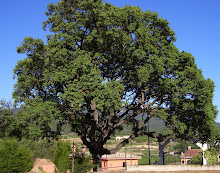Catalan writer Quim Monzó published on Nov. 9 his daily column in
La Vanguardia newspaper with the above title.
It reads more or less like this:
[The head of the regional government of Catalonia, Arthur] Mas went [this week] to Brussels to explain that Catalonia is an old European nation; that Spain, instead of dialogue it offers shouts; that, if we get to that occasion, "we will demand shelter from the European Union, appealing to the democratic values of its foundation;" and that, in the same way that "Catalonia in all of its history has never failed Europe, we hope that Europe will not let down Catalonia."
Oh, ingenious! It is exactly because a great part of Europe let us down three centuries ago, there happened what happened. Britain, Austria, Portugal and the United Provinces betrayed their accord with Catalonia and left it without protection and at the mercy of Philipp V. This disloyalty was so obvious that in 1714 the House of Lords held sessions in which it debated the situation in which it had left the Catalans. They even published two books on the affair: "The case of the Catalans considered", and "Deplorable history of the Catalans"; a manner of self-criticism of the treason that ended with the Treaty of Utrecht. That Europe is not the modern one, but I would not put a lot of trust in the latter one, either.
You can read more on the House of Lord's activities
here. Google books offers this
book.


